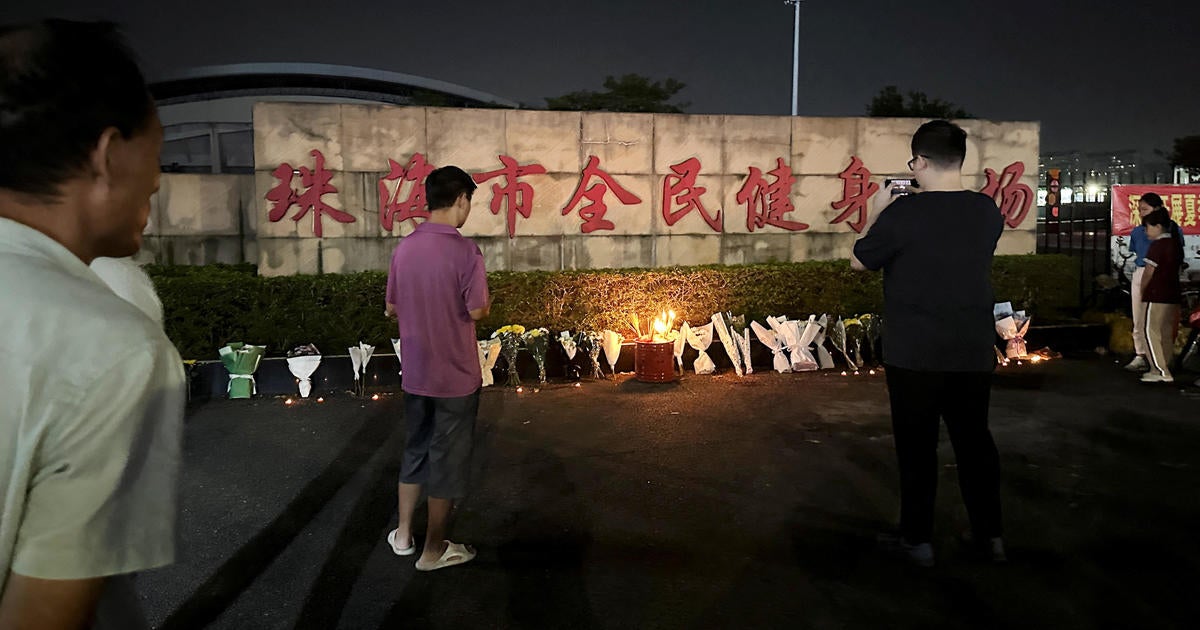China Executes Two Men Responsible for Deadly Attacks, Sparking Debate on "Revenge on Society Crimes"
In a move that has sent shockwaves across the nation, China has executed two men responsible for separate, horrific attacks that claimed the lives of dozens of innocent people. The swift executions, carried out on Monday, underscore the government's zero-tolerance policy towards violence and highlight a growing concern over a disturbing trend: "revenge on society crimes." These heinous acts, committed by individuals harboring deep-seated grievances and fueled by personal frustrations, are leaving a trail of destruction and prompting crucial discussions on societal issues and mental health in China.
The Zhuhai Stadium Rampage: A Tragedy of Unfathomable Proportions
The first execution involved Fan Weiqu, a 62-year-old man whose anger over a divorce settlement exploded into a horrific act of violence. Driving his car into a crowd outside a bustling sports stadium in Zhuhai, he left at least 35 people dead and over 40 seriously injured. This attack, the deadliest in China in over a decade, sent chills down the spines of millions and ignited fears of a potential escalation of "revenge on society" acts. The sheer scale of carnage unleashed on the eve of a major aviation exhibition amplified the tragedy, highlighting the vulnerability of seemingly safe public spaces.
Fan Weiqu's Motivation and the Underlying Issues
Fan Weiqu's act serves as a harrowing example of how seemingly minor personal conflicts can escalate into horrific events. While his motives stemmed from personal turmoil linked to a divorce, the case compels us to question the systemic and societal issues that may have contributed to the crisis. Access to support systems and effective conflict resolution methods are essential aspects needing urgent attention. The attack has sparked conversations on whether society fails to provide adequate channels to address the emotional fallout that can arise in times of crisis.
Analyzing the security implications and public safety concerns
The incident also raised substantial questions around security protocols surrounding major events. While the specifics of security measures at the sports stadium remain unclear, the catastrophic success of this attack demands a critical review and implementation of robust preventative security measures in public spaces.
The Wuxi Vocational School Stabbing: A Grim Reminder of the Extent of Societal Frustration
The second execution involved 21-year-old Xu Jiajin, who carried out a brutal stabbing attack at his vocational school in Wuxi. His victims included eight innocent individuals, leaving another 17 severely injured. Xu, frustrated with his failing academic performance and perceived job market hardships, carried out an act fueled by disillusionment.
Understanding the Motivation behind the Violence
Xu Jiajin's story sheds light on a pressing issue affecting young adults in China and worldwide—the challenges and disappointments faced in the educational and professional spheres. The immense societal pressure for success often causes younger people to be overwhelmed by expectations and anxieties and could potentially influence their behavior. This calls for increased mental health resources and societal support for young people to prevent frustration from turning to violence.
A Wake Up Call for Reform
The incident underlines the importance of comprehensive measures to improve the well-being of young people. This should entail enhanced support systems, resources promoting mental health awareness, providing guidance on job market demands, and a significant investment in career counselling programs, thereby offering them a sense of direction and mitigating feelings of disappointment and frustration.
The "Revenge on Society Crimes" Phenomenon: A Call to Action
Both attacks fall under the umbrella of what Chinese authorities term "revenge on society crimes." These are attacks often perpetrated by individuals feeling wronged by society and harboring an overwhelming sense of anger, helplessness, and frustration. These horrific actions are escalating and necessitate an urgent response. These attacks necessitate a proactive societal response encompassing increased mental health awareness and proactive engagement.
Examining the root causes of violence in China and possible solutions
The frequency of "revenge on society" crimes raises essential questions about the systemic flaws potentially causing discontent within society. Such issues may range from inefficient justice systems and difficulties accessing aid to widespread inequality and inadequate resources for mental healthcare. Examining the deeper sociological and psychological aspects of these situations and deploying practical strategies for conflict mitigation and preventative interventions would constitute vital steps to mitigate future violent incidents.
Prevention through Public Policy and Mental Health Reform
In tackling the root causes, focusing on public policy shifts is crucial. Effective policies may entail comprehensive measures designed to address social inequality and strengthen support structures providing mental healthcare services.
China's Capital Punishment and the Global Debate
While the swiftness of China's capital punishment draws criticism, the nation remains unwavering in its commitment to enforcing strict penalties against violent criminals. The executions highlight the government's resolve to combat violent crime and prevent future attacks, but raise wider questions on the role of justice systems globally.
Understanding the role of capital punishment in addressing violent crimes
The ongoing debate on capital punishment includes considerations for its efficacy in preventing crime and promoting a just societal framework. Proponents maintain that it acts as a deterrent and ensures justice for victims' families, while critics question its ethical nature and possible human rights violations. However, it’s essential to discuss ethical considerations along with legal ones to ensure effective strategies are put into practice.
Take Away Points:
- The executions highlight China's tough stance on violent crime.
- The attacks underline societal issues necessitating enhanced support and mental health services.
- The "revenge on society crimes" phenomenon demands multi-faceted approaches encompassing preventive strategies and social reforms.
- The use of capital punishment and related global debates warrant further reflection and critical analysis.









